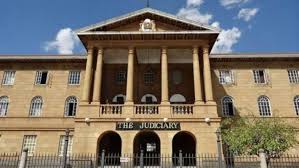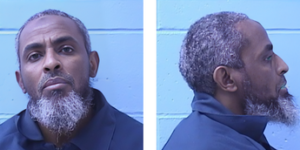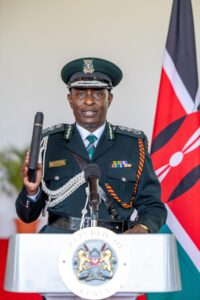High Court Overturns Acting Inspector General’s Ban, Allowing Protests in Nairobi CBD to Proceed
VICTOR KIPCHUMBA July 18, 2024 0Court Ruling Halts Police Ban
The High Court suspended the decision by Acting Inspector General of Police Douglas Kanja to ban public demonstrations in the Nairobi Central Business District (CBD). On Wednesday evening, Kanja announced a ban on protests in Nairobi for an unspecified period. He claimed the protests, which began in June, led to massive property destruction and loss of lives due to criminal elements.
However, Justice Bahati Mwamuye intervened on Thursday afternoon. He suspended the decision pending a hearing on a petition filed by the Katiba Institute. This petition challenged the legality of the ban.
Legal Proceedings
Justice Mwamuye ordered a conservatory suspension of the police’s decision. He referred to the Press Release dated 17/07/2024, which prohibited all demonstrations within the Nairobi CBD and its surroundings. Justice Mwamuye’s order effectively put a hold on the police’s prohibition of demonstrations until further court proceedings.
Additionally, the court barred the Inspector-General of Police and all National Police Service members from enforcing the ban. The Judge emphasized the need for a fair hearing and instructed the petitioner to serve the application and petition by the close of business on 18/07/2024.
Petition by Katiba Institute
The Katiba Institute argued that people should exercise their right to demonstrate peacefully and unarmed. They insisted that the police should protect these assemblies rather than use excessive force. According to their petition, allowing peaceful protests aligns with public interest and constitutional rights.
The Institute highlighted the critical role of peaceful demonstrations in a democratic society. They stressed that the police must facilitate, not hinder, such activities. The petition underscored past instances where police actions had escalated violence during protests. Therefore, the Institute called for judicial intervention to ensure the protection of citizens’ rights.
Public Reactions
The suspension of the ban received mixed reactions. Human rights organizations and civil society groups praised the court’s decision. They viewed it as a victory for democracy and civil liberties. They argued that peaceful protests are essential for democratic expression and should be facilitated by the police.
Conversely, some government officials and business leaders expressed concerns about potential disruptions. They claimed that the protests negatively impacted businesses and daily life in Nairobi. They called for a balanced resolution that ensures the right to protest while protecting public and private property.
Impact on Nairobi Protests
The court’s suspension of the police ban allows protests to proceed in Nairobi CBD. Demonstrators planned to protest on July 18, 2024, and the ruling provided a temporary reprieve. The decision emphasized the importance of following legal procedures and upholding citizens’ rights.
Demonstrators expressed relief and reaffirmed their commitment to peaceful protests. They stressed the need for the government to address their concerns without resorting to excessive force. The ruling also highlighted the judiciary’s role in safeguarding democratic rights.
Broader Implications
The legal battle between the police and the Katiba Institute raises broader questions about the balance between public order and constitutional rights. The court’s decision sets a precedent for handling similar cases in the future. It underscores the judiciary’s role in protecting citizens’ rights and maintaining checks on executive actions.
The case also reflects ongoing tensions between government authorities and civil society. It highlights the challenges of navigating complex issues related to protests, public safety, and democratic freedoms. The outcome of this case will likely influence future debates and policies on these matters.
Next Steps
The court will continue to hear the case in the coming weeks. Both sides will present their arguments, and the court will determine the legality of the police ban. The outcome will have significant implications for the right to protest in Kenya.
In the meantime, the public remains engaged in the debate. The case has sparked discussions about the role of protests in driving social and political change. It underscores the importance of balancing public order with protecting constitutional rights.
Conclusion
The High Court’s suspension of the police ban on Nairobi CBD protests marks a significant development in Kenya’s democratic process. It reaffirms the importance of upholding citizens’ rights to peaceful assembly and expression. The case continues to unfold, and its outcome will shape the future of protest rights in Kenya.
For more updates on the case, visit the High Court’s official website. For further information on the Katiba Institute’s efforts, check their official site.
The judicial process will continue to unfold, with the next hearing scheduled for later this month. This case serves as a critical reminder of the ongoing struggle to balance public order and constitutional freedoms in Kenya.






